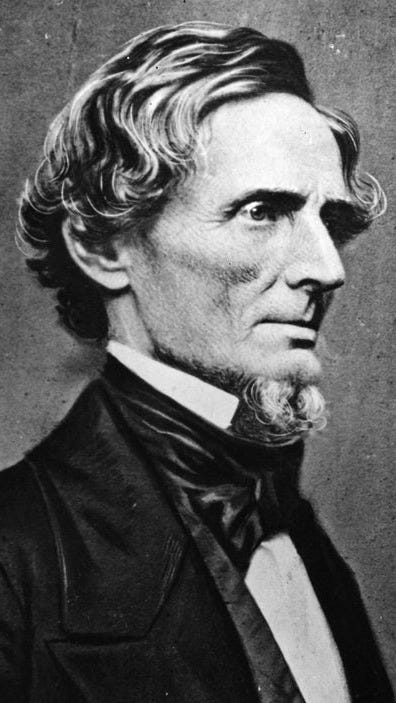The Hilarious Consequences of Hubris, Past and Future
South Carolina seceded from the United States right around the 1860 Winter Solstice, too scared to live in a country with a president who didn’t want slavery in the territories. Ten more states eventually joined South Carolina in a short-lived experiment in making a republic run by and for slaveholders called “The Confederate States of America.” This attempt to maintain slavery backfired on them in spectacular fashion, and the hubris of these rich and powerful men right before they took it too far and lost big provides a potential bright spot in the present.
Confederates seceded to protect a society by and for property-owning white men, wherein “property” includes other people. In the process, they created the conditions for that society to become untenable. Uncompensated, immediate abolition was a political impossibility in 1860, but became reality after just a few short years of a long, hard war.

Consider this. During the French Revolution, slaves in the French colony of Saint-Domingue took up arms, eventually defeated the French, and established the independent nation of Haiti. After winning independence in 1804, no existing nation formally recognized Haiti until the French finally did in 1825. This recognition came with a 150 million franc indemnity (agreed to with warships in the harbor) for lost “property” that left Haiti in crippling debt from which it has never really recovered. The Haitians beat Napoleon’s seemingly unstoppable army more than a decade before the Duke of Wellington figured out how, and they still had to pay their former enslavers for the loss of their “property,” which in this case was themselves.

Or consider this. During the American Civil War, not every slave state seceded. In March 1862, the U.S. Congress passed a resolution in favor of gradual and compensated emancipation in the remaining slave states. It was ignored. Lincoln explained in an address that he does not “speak of emancipation at once, but a decision at once to emancipate gradually.” The border state congressmen responded. “No one is authorized to question the right [to slavery] or to limit its enjoyment.” Early in the war, even gradual and compensated emancipation was too radical to consider. Three years later, the constitution outlawed slavery and no one received a cent.
Between Haiti and early attempts at emancipation, there was always time or money promised to slaveholders in exchange for eventual emancipation. But the slaveholders’ rebellion begun in South Carolina led to the sudden nonexistence of slaveholders. Only by making a nation centered around slavery did slavery end decades before it would have otherwise. Now that all the shooting, bleeding, and dying of the Civil War is done, we can see that it’s pretty hilarious.
It is probably ill-advised to compare the nineteenth century to the twenty-first, or government-sanctioned slavery to the nefarious, but also legal, acts of the contemporary ruling classes. However, the slaveholders’ belief in their unstoppable economic and political power just a few short years before the system that made them powerful disappeared is interesting to compare to the hubris of the most powerful people today.
A recent Oxfam study showed that the wealth of the ten richest humans grows by $100 million a day. Meanwhile, the U.S. federal minimum wage has sat at $7.25 an hour since 2009. A dollar in 2025 has the buying power of $.67 in 2009. So someone making $7.25 now has the economic power of someone making $4.85 in 2009, which was illegal at the time because that’s way too little money to live on. The poor are getting poorer and the rich are getting richer.
The moment when the contradictions of an illogical system make that system untenable is looming. These patterns cannot last. Inequality is currently growing, and the political willingness to address it is disappearing. Something is going to give. And when it does, decades of history will happen in weeks.
This is not some accelerationist call to bring on chaos so we can build something new in the rubble. Rather, it’s a call to keep advocating for better ways to treat one another. At the start of the Civil War, abolitionists were considered the lunatic fringe. They were radicals with almost no voice in mainstream politics. A few years later, their once-impossible platform became part of the Constitution. The ideas and movements that will make this world a better place for all of us will need to be there, ready and waiting, when the time comes. And the only way those ideas and movements will be there is if we put them here right now.




